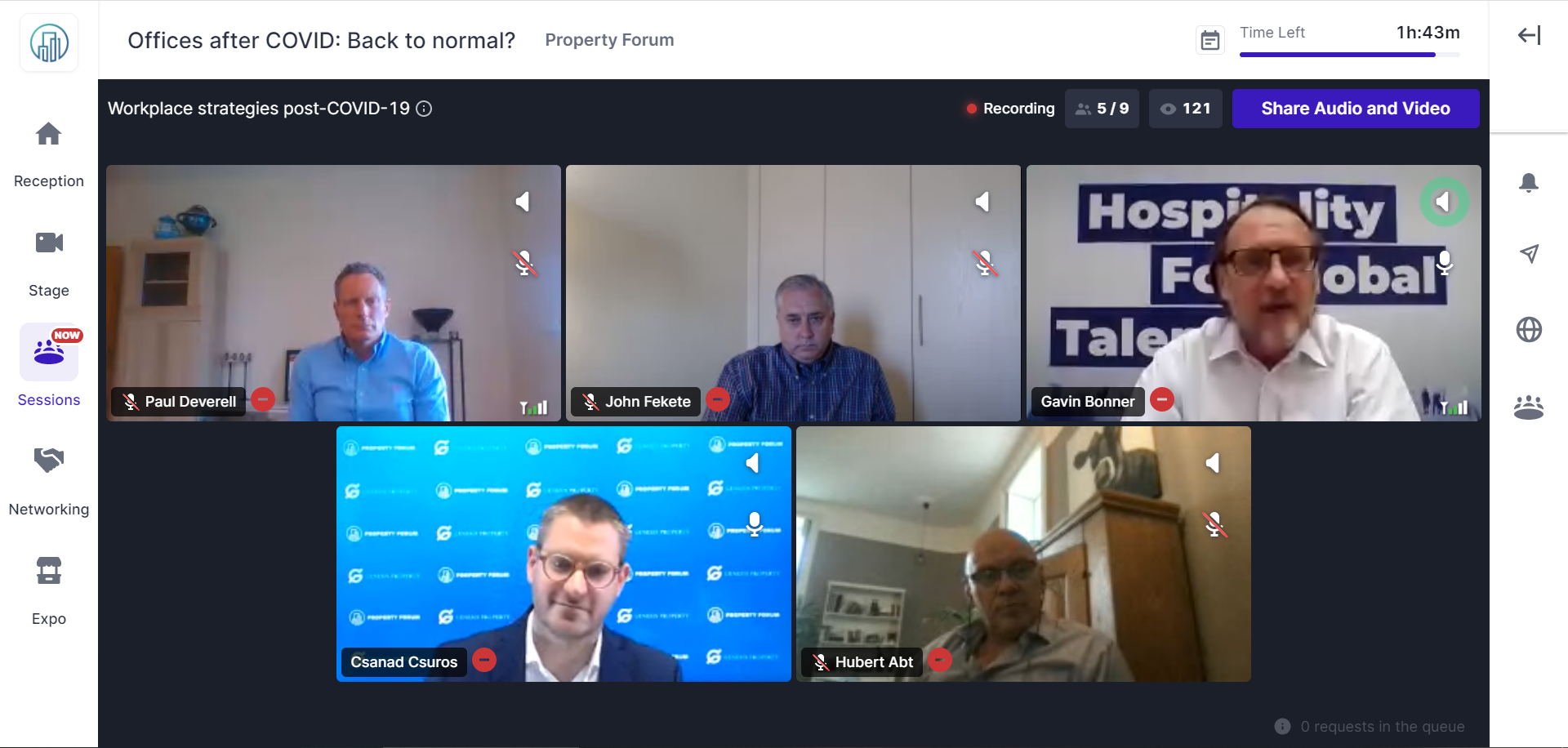
Property Forum’s latest online panel aimed to answer some of the many questions around the future of workplaces. Four experts, with the moderation of Csanád Csűrös, CEO of Property Forum, discussed workplace strategies for the post-COVID-19 world and their implications on the real estate industry.
We cannot ignore the change in social habits, stated Hubert Abt, CEO at New Work and workcloud24. 75% of the service-related jobs are digitalized already, which means that these employees should be able to work from home between two and three days a week. Companies are finding tools to manage their workforce remotely and this will lead to less space requirement. Office buildings will need to attract tenants with really good arguments in terms of services and flexible offers.
On the other hand, John J Fekete MRICS, Executive Director - Saudi Arabia, Head of Consulting Services – MENA, JLL argues, that we will not see demand for fewer square meters of office space. Rather, we will see it made up differently. People still want to go to the office, however, they want to use it for different activities. They want to get feedback from their manager, they want to be able to concentrate, do individual work, they want to be inspired and create and innovate. The office will become a hub for collaboration, problem-solving and for career development.

One thing that we need to take into consideration is that most companies have a fixed rental period. They're tied into leases. So even if the discussion about less space was coming up, they still need to negotiate that, added Gavin Bonner, Vice President at Genesis Property. Now it is the case of looking to how to utilize that space to a better end-product. Spaces should become more agile, more flexible so that we can adapt very quickly to the circumstances that we face.
According to Paul Deverell, Business Director at Future2, we need to examine the situations more individually. A lot will depend on who you work for, what sector you work in and what your company advocates.



